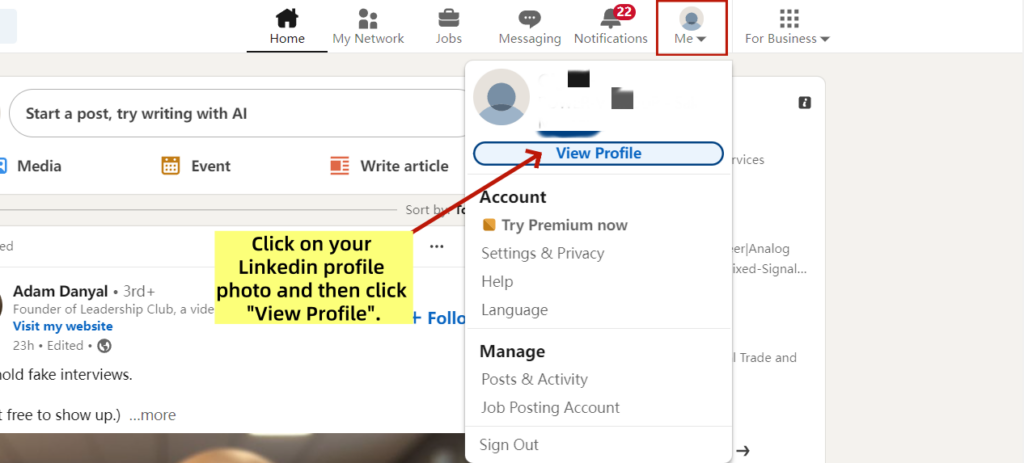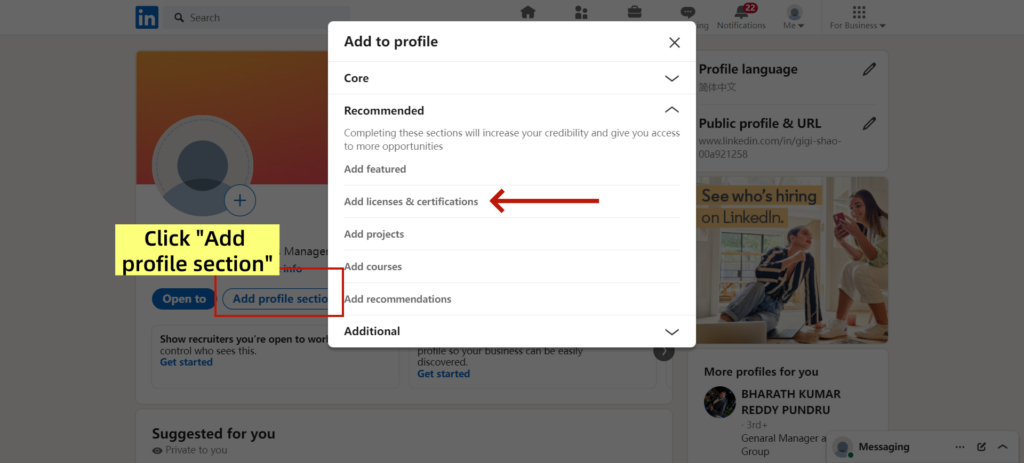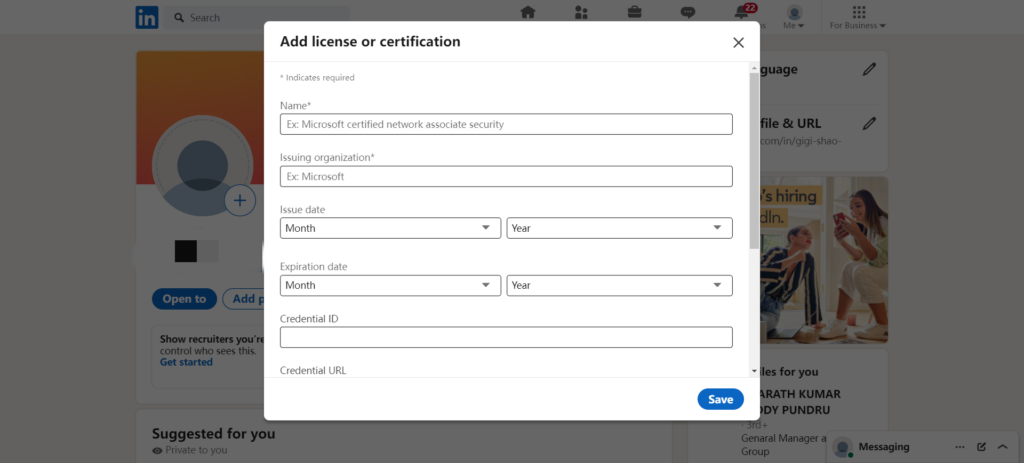How To Add SQL Certification To LinkedIn Guide For 2025
Table of Contents
In today’s data-driven job market, highlighting your SQL certification on LinkedIn can significantly boost your professional visibility and career prospects. According to LinkedIn’s 2024 Skills Report, SQL remains one of the top technical skills in demand, with a 42% increase in job postings requiring SQL proficiency. Whether you’ve earned your certification from Microsoft, Oracle, IBM, or other recognized providers, properly showcasing these credentials on your LinkedIn profile validates your database management expertise and makes you more discoverable to potential employers and recruiters.
What is SQL Certification?
Definition
SQL (Structured Query Language) certification proves your ability to manage and analyze data using SQL databases. These certifications verify your skills in writing queries, managing databases, and handling data – essential skills in today’s data-driven world.
Different SQL databases include:
- MySQL
- PostgreSQL
- Microsoft SQL Server
- Oracle Database
SQL certifications are perfect for:
- Database administrators
- Data analysts
- Business intelligence specialists
- Software developers
- Data scientists
Importance
In today’s data-driven business landscape of 2025, SQL (Structured Query Language) remains a cornerstone technology for managing and analyzing organizational data. According to LinkedIn’s 2024 Jobs Report, data-related roles requiring SQL expertise have seen a 34% growth in demand compared to the previous year. This surge reflects the increasing importance of data management and analysis across industries.
The current job market shows promising salary ranges for SQL-certified professionals:
- Entry-level SQL Database Administrators: $65,000 – $85,000
- Mid-level Data Analysts with SQL certification: $85,000 – $110,000
- Senior Database Engineers: $120,000 – $160,000
- Data Scientists with SQL expertise: $100,000 – $150,000
Bureau of Labor Statistics projects a 9% growth rate for database administration roles through 2029, faster than the average for all occupations. This growth, coupled with the increasing adoption of cloud databases and big data analytics, makes SQL certifications a strategic career investment.
As organizations continue their digital transformation journey, the demand for professionals who can effectively manage, analyze, and secure data becomes more critical. SQL certifications not only validate these skills but also demonstrate your ability to adapt to evolving database technologies and industry standards.
Popular SQL Certifications for LinkedIn
| Certification | Cost (United States) | Validity | Focus Area | Prerequisites |
|---|---|---|---|---|
| Azure Database Administrator Associate | $165 | 2 years | Cloud DB | Basic SQL |
| Data Analyst Associate | $165 | 2 years | Analysis | None |
| Oracle Database SQL Certified Associate | $245 | Lifetime | SQL Basics | None |
| Oracle Database Administration | Depends | Lifetime | Advanced | SQL Associate |
How to Add SQL Certifications to LinkedIn
SQL certifications serve as validated proof of your database management capabilities, making them particularly valuable on professional networking platforms like LinkedIn. They not only demonstrate your technical competency but also show commitment to professional development. In a competitive job market, these certifications can be the differentiating factor that catches a recruiter’s attention.
Here’s the Step-by-Step Guide on how to add SQL Certifications to LinkedIn:
- Click on “Add profile section”
- Choose “Licenses & Certifications”
- Fill in certification details:
- Name of certification
- Issuing organization
- Issue date
- Expiration date (if applicable)
- Credential ID
- Credential URL



Best Practices
- Include the exact certification name
- Add the certification logo if available
- Keep expiration dates current
- List certifications in order of relevance
Tips
1. Profile Optimization
- Add SQL-related skills to your profile
- Include specific database technologies
- Mention relevant projects
- Join SQL-focused LinkedIn groups
2. Building Your Portfolio
- Share SQL projects on LinkedIn
- Write posts about your certification journey
- Help others in SQL-related discussions
- Connect with database professionals
Advanced Job Search with SQL Certifications
Using LinkedIn Effectively
- Set job alerts for SQL positions
- Filter by required certifications
- Follow companies using SQL technologies
- Network with hiring managers
Advanced Job Search Tools – Jobright.ai
While LinkedIn is valuable, modern job seekers can use AI-powered platforms like Jobright.ai to find SQL-related positions. Jobright.ai matches your SQL certifications and skills with relevant opportunities from over 8 million job listings, offering features like:
- Resume optimization for SQL positions
- AI-powered job matching
- 24/7 job search assistance
- Insider connections for networking
Struggling to Craft Your Story?
Get Personal Cover Letter Tips on Jobright.ai
Leverage Our AI Co-pilot Orion and receive personalized cover letter inspiration for every position
Try Orion for FREEFuture of SQL Certifications (2025 and Beyond)
According to Microsoft’s latest certification roadmap, SQL professionals should focus on integrated cloud and on-premises database management skills, with their 2025 certification updates emphasizing hybrid cloud environments and AI integration. IDC reports that by 2025, over 75% of enterprises will prioritize SQL expertise combined with cloud platform knowledge, while Oracle’s certification program highlights the growing need for security and compliance knowledge. Gartner’s analysis further suggests SQL professionals should develop skills in containerization and microservices architecture, as these become increasingly crucial for database management.
Conclusion
As we’ve shown in this guide, having SQL certificates is still helpful for tech workers in 2025, particularly when you highlight them properly on LinkedIn. To get the most from these certificates, you need to do more than just earn them – you need to show how they fit into your overall career story.
Remember, certification is just the beginning. The real value comes from applying these skills in real-world scenarios and continuously expanding your knowledge base. As data continues to drive business decisions, your SQL expertise will become increasingly valuable in the job market.
Start learning today and use these certificates to build a better career in data management and analysis.

